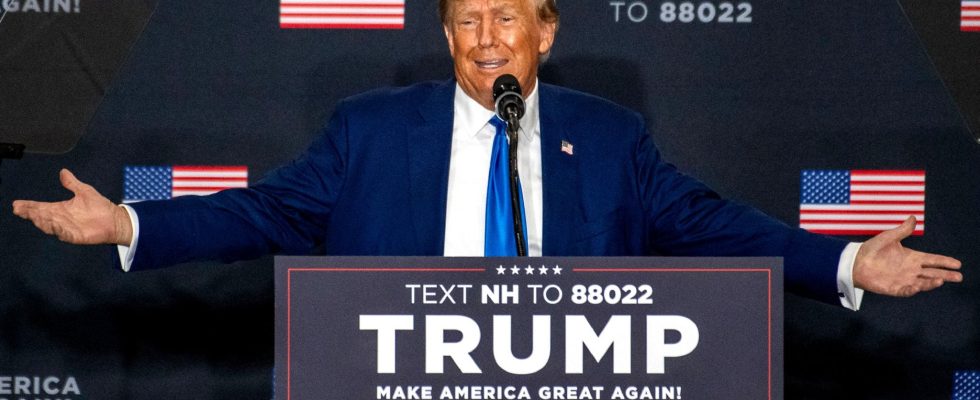It is a still incalculable shock wave in the tumultuous American presidential campaign. The Colorado Supreme Court declared Donald Trump ineligible for the presidency on Tuesday, December 20 due to his actions during the assault on the Capitol.
All eyes are now on the Supreme Court of the United States, before which the former Republican president will appeal, one of his spokespersons immediately announced.
The rebellion of January 6, 2021
By a majority of four out of seven judges, the Colorado Supreme Court upheld the trial decision concluding that Donald Trump had “engaged in rebellion on January 6, 2021” during the assault on the Capitol, but on the other hand considered that the 14th Amendment of the Constitution, invoked to claim his ineligibility, did indeed apply to a president.
That day, hundreds of white-hot supporters of Donald Trump stormed the Capitol, the sanctuary of American democracy, to try to prevent the certification of the victory of his Democratic opponent Joe Biden.
The historic indictment of the ex-president on August 1 at the federal level then on August 14 by the state of Georgia (southeast) for his allegedly illicit attempts to obtain the reversal of the results of the 2020 election opened a legal debate on his possible ineligibility, leading to appeals in several states. But out of around fifteen procedures underway in various states, including two rejected in Minnesota and Michigan, the Colorado courts are the first to declare Donald Trump ineligible.
Remove Donald Trump’s name from the ballots
In their decision ordering the electoral authorities of this western state to remove Donald Trump’s name from the ballots for the Republican primaries in 2024, the judges say they are “aware of moving into unknown territory”. They are also suspending this injunction until January 4, the deadline for the validation of ballot papers in the primaries, in the event of an appeal to the Supreme Court of the United States before then.
“If an appeal is filed with the Supreme Court before this suspension expires, it will remain in effect and the election official must still include President Trump’s name on the 2024 primary ballot until she receives any injunction or mandate of the Supreme Court”, according to their judgment.
Consequently, while awaiting a possible decision from the Supreme Court, commentators point out that in all likelihood the name of Donald Trump will appear on the ballots in Colorado as in the other states affected by “Super Tuesday”, the March 5, 2024.
An “undemocratic” decision
The Republican camp nevertheless denounced an “undemocratic” decision. “The Colorado Supreme Court issued a completely flawed decision this evening and we will quickly go to the United States Supreme Court and seek a stay of this deeply undemocratic decision,” said Trump campaign spokesman Steven Cheung. . The Republican President of the House of Representatives, Mike Johnson, considered that the decision was “irresponsible” and nothing less than a “thinly veiled partisan attack”.
As for Florida Governor Ron DeSantis, Trump’s rival for the Republican primary, he called on the Supreme Court to overturn the decision. “The left invokes democracy to justify its use of power, even if that means abusing judicial power to exclude a candidate from elections based on spurious legal arguments,” he wrote on X.
“We won!” for its part reacted the anti-corruption citizen group Crew, at the origin of the procedure in Colorado. This decision “is not only historic and justified, but necessary to protect the future of democracy in our country,” added Crew president Noah Bookbinder in a statement.
“Mr. Trump acted with the specific intent of inciting political violence and directing it toward the Capitol with the aim of preventing the certification of the election” of Joe Biden, the trial judge said, Sarah Wallace, in her decision on November 17. On the other hand, it considered that the 14th amendment of the Constitution, invoked by the applicants, did not apply to the president, while recognizing the existence of doubts on this point.
This amendment adopted in 1868, targeting at the time the supporters of the Southern Confederacy defeated during the Civil War (1861-1865), excludes from all public responsibility anyone, after having taken an oath to defend the Constitution, who would have engaged in acts of “rebellion”.
